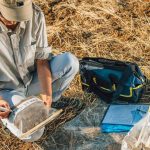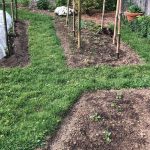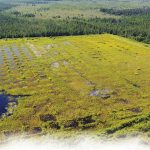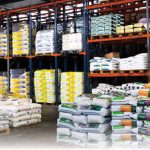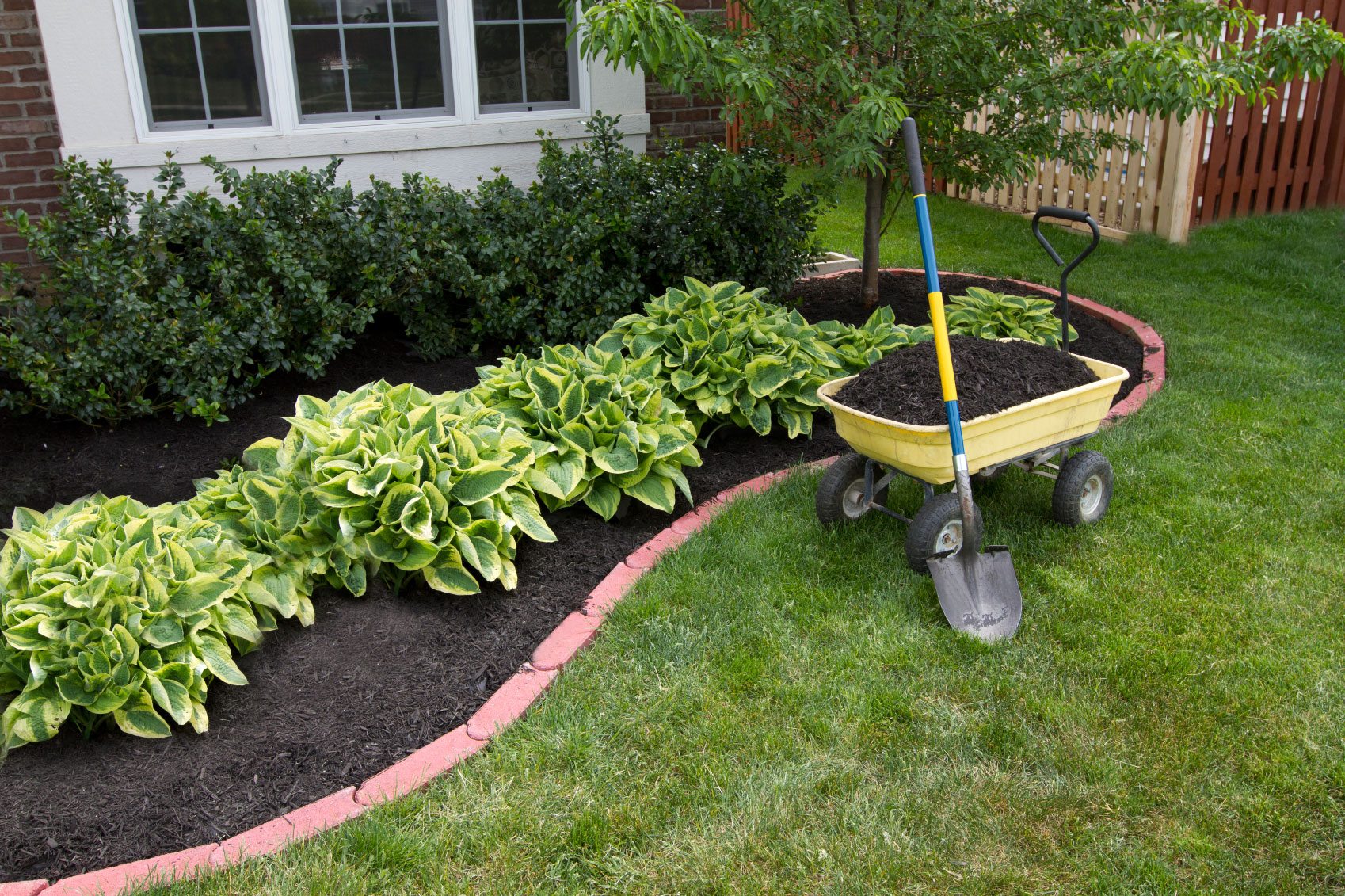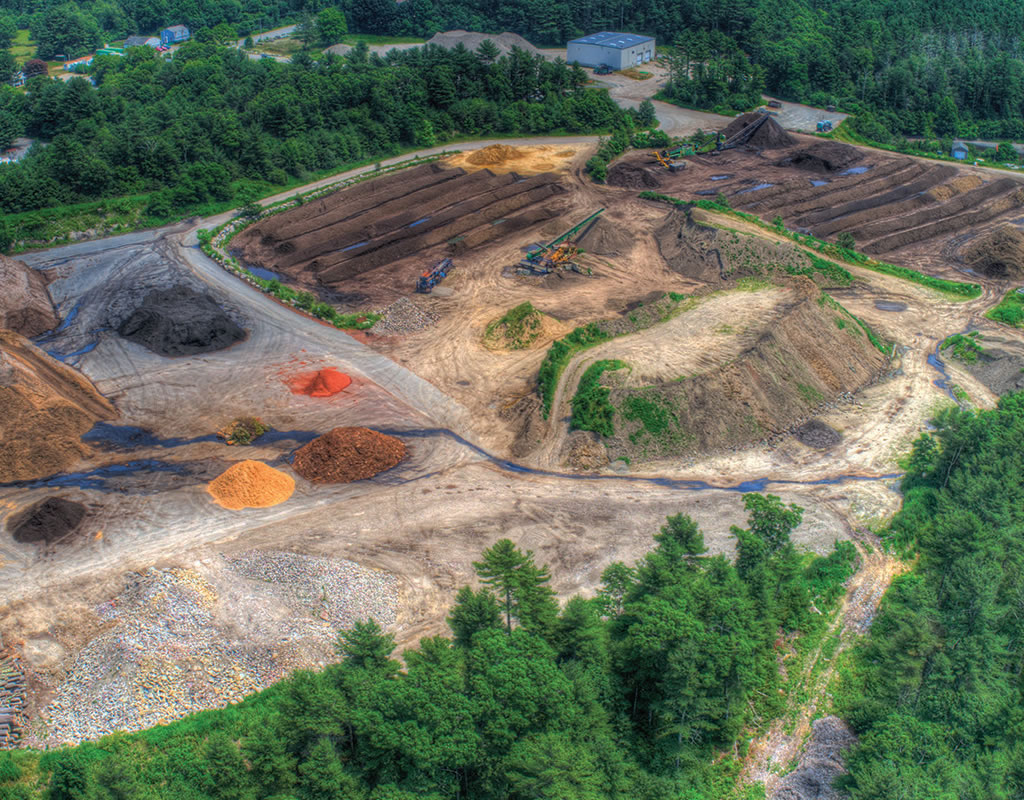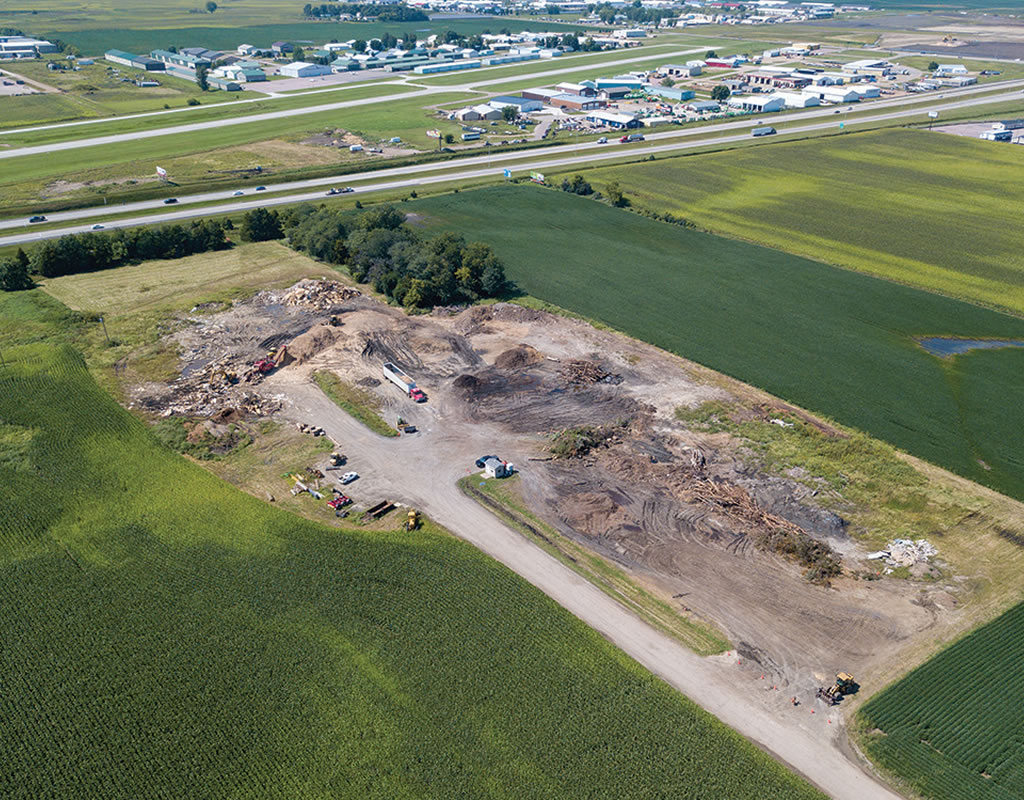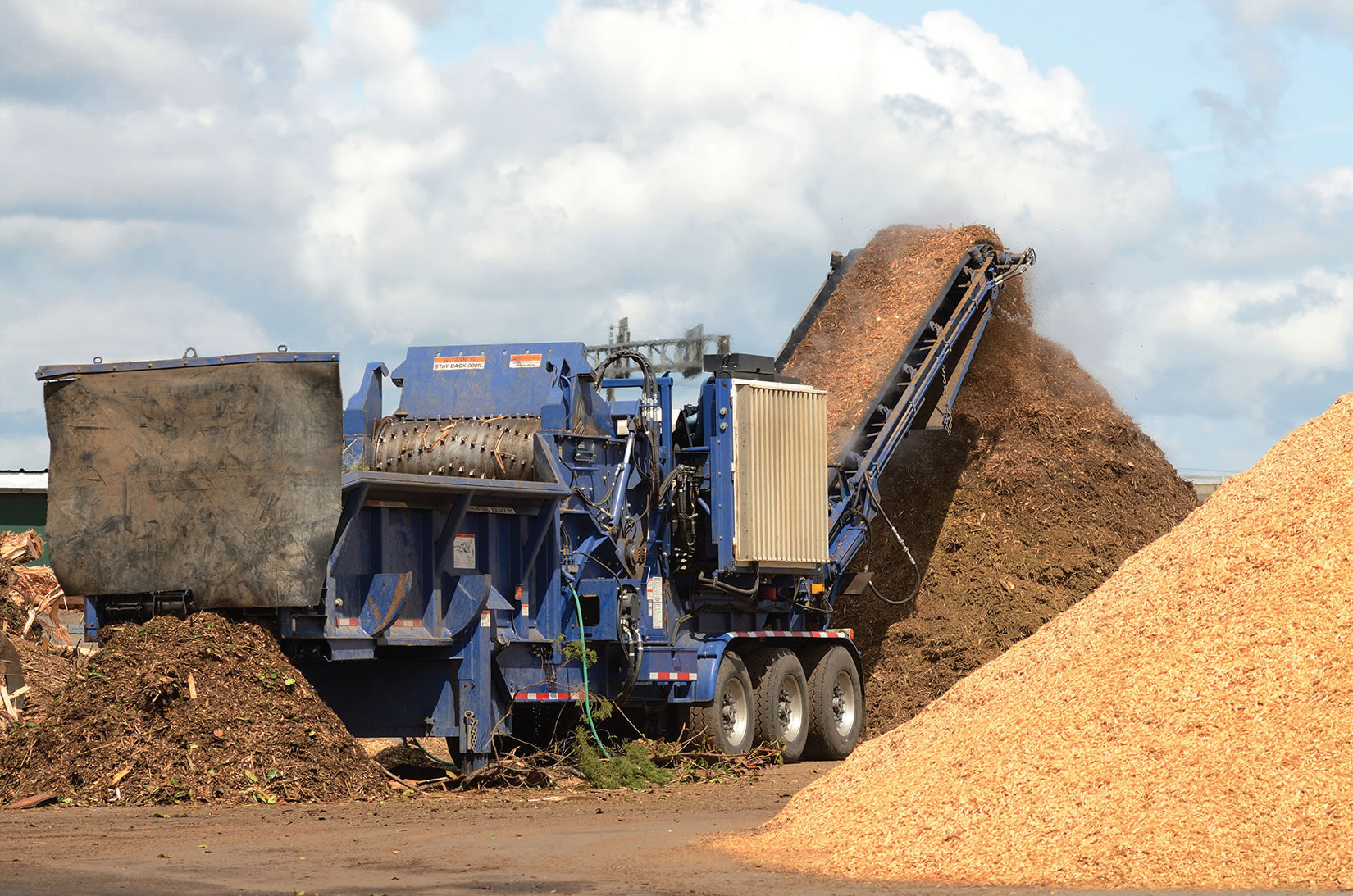By P.J. Heller
It wasn’t that long ago when Jim Weber looked out at a section of his Ohio Mulch property and watched as trucks would get stuck in thick mud.
Weber wanted to use part of a 10-acre plot for truck and equipment storage and to construct a warehouse building. The problem was the ground was too damp, soft and unstable for any type of paved surface.
Hanlin Rainaldi Construction, a commercial general contractor in Columbus, Ohio, told Weber he would likely need a suitable subgrade before a layer of blacktop could be put down. Without it, the contractor said, the site probably wouldn’t pass a “proof roll.” That entails having a fully loaded truck drive on the surface without any sinkage or cracking.
Weber was advised his best option would be to wait about a year – until this summer – to try to drain the area so a suitable subgrade could be applied before the blacktop.
“We had an enormous amount of rain . . . Every time we did a proof roll on the gravel without the substrate we failed,” he said. “There was too much moisture in the ground. They said we needed to seal it off and wait until next year.”
Weber, owner and president of Ohio Mulch headquartered in Columbus – one of the largest mulch manufacturing companies in Ohio – didn’t want to wait that long. He had sold some of his property and needed a place to store his inventory.
“I couldn’t have the land sitting in that condition for too long,” he said, “so I was willing to try almost anything.”
Weber mentioned the problem to Kent Rotert, vice president of Colorbiotics, which supplies mulch colorant and mulch-coloring equipment to companies including Ohio Mulch.
As luck would have it, Colorbiotics was just introducing Biomag Easy Pave, a soybean-based solution applied to recycled asphalt pavement (RAP) millings that, once compacted and set, provides an asphalt pavement surface ideal for parking and storage lots, driveways and low-traffic roadways.
Utilizing reclaimed asphalt pavement for new pavements is not unique. The National Asphalt Pavement Association (NAPA) reports that “more than 60 million tons of asphalt pavement material is reclaimed each year during road widening and resurfacing projects, and nearly all of that material is reused.
“Incorporating reclaimed asphalt pavement into new pavements reduces demands for virgin asphalt binder, helping to keep costs down as well as improving the environmental footprint of projects,” NAPA said.
What was unique about the Ohio Mulch project was the use of Easy Pave.
“The situation . . . sounded perfect for our product,” Rotert said.
A Colorbiotics team visited Ohio Mulch in June to help Weber and his crew run a test on the site using RAP millings and Easy Pave.
A bulldozer moved 6 inches of topsoil before evenly spreading a 6-inch layer of RAP millings across the site. The crew then used a 1,000-gallon tank and truck-mounted sprayer to apply the Easy Pave solution to 3 acres and compacted it with an asphalt roller.
The entire job took one day to complete and was expected to take several weeks to fully set.
“Right away, it started to harden and after about 28 days it got very very hard like blacktop,” Weber recalled.
Less than three weeks after putting down the substrate, Weber invited Ed Rainaldi of Hanlin Rainaldi Construction to take another look at the site.
“They were surprised by the density and how quickly it set,” he said. “It was unlike anything they’d seen.”
Austin Hohmann, product manager at Colorbiotics, said he, too, was surprised by such quick results. He said the company had predicted it would take a minimum of two months to show results.
“The fact it only took a little over two weeks is incredible,” he said.
Hohmann said normally quick results with Easy Pave were because it works differently from similar solutions used with RAP millings.
The product “uses water as a transport vehicle to get the material down,” he explained. “It is almost like a tack weld, binding the points at which the millings connect.”
After the subgrade passed the “proof roll,” Weber said he and his team applied the same solution to the remaining 3 acres. Hanlin Rainaldi subsequently applied two layers of hot mix asphalt on top of the subgrade. Cement was used on two acres of the subgrade to accommodate a 10,000-square-foot ClearSpan building as well as some soil processing equipment. By placing the ClearSpan building on top of the ground, no building permits were required.
Although the substrate was suitable for trucks and landscaping equipment to drive and park on without sinking or creating dust, concern about storing bulk mulch and having wheel loaders scraping the ground prompted Weber to blacktop the area.
“If I was going to use the parking lot for just forklift traffic, I would have just left it that way,” he said of the substrate.
“The dust elimination is a bonus,” he added. “It was becoming a problem for our neighbors, but now we don’t have any dust at all.”
Treating the substrate with Easy Pave, which contains a soybean-based polymer that seals the surface, also solved the problem with rainwater. Any existing water beneath the surface drained out the sides into a lower, unused part of the property.
“Right after a hard rain, we had no water penetration going on,” Weber said. “The water ran right off.”
Use of the soy-based ingredients in Biomag Easy Pave not only benefits asphalt applications but offers the agricultural sector an innovative way to use its soybean crop and helps it reduce waste, according to Colorbiotics.
The product is safer for the environment and is more carbon the company said. This is especially important when applying to surfaces that can have run-off into nearby ditches or grassy areas, it added.
It also provides a surface almost twice as durable as competitive topicals used in conjunction with RAP millings, the company said.
Easy Pave is part of the Biomag product line that includes Biomag Hot Mix and Biomag Topical+, both used in high-traffic and heavy-load road paving applications. Colorbiotics also offers Invigorate Additive and Invigorate Topical, which are used for less-traveled roads.
“With both the Biomag and Invigorate product lines, contractors can make pavement that is good for the planet and even better for their bottom line,” Hohmann said.
“. . . Being environmentally conscious is important for our operation, too,” Weber added.
Weber admitted he was delighted to have the entire paving project completed by the fall of 2022, about eight months earlier than had originally been predicted.
“I’m pleased we could get this job completed in a relatively short amount of time,” he said. “I couldn’t believe it.”
Related News
Subscribe Today
Every other month, Soil & Mulch Producer
News brings you important stories about:
• New Technology
• Products
• Industry News
• Research Studies
Soil & Mulch Producer News features articles and services relevant to your daily operations.

